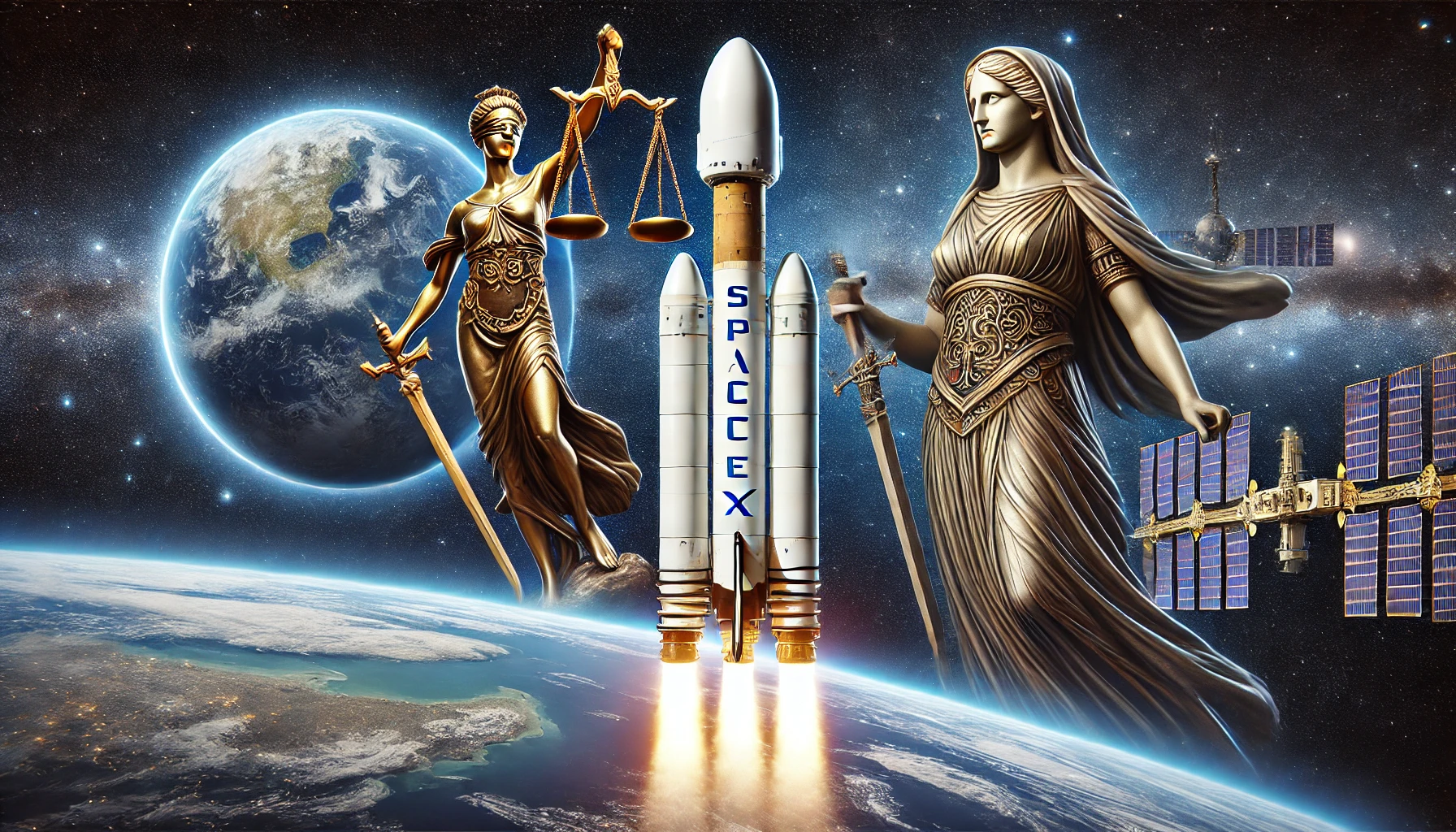The first months of 2025 have been an explosive phase for private space. US-based Firefly Aerospace has landed its Blue Ghost vehicle on the Moon — the first success for a private company. But other missions, particularly the explosions of Elon Musk’s SpaceX Starship rockets, have been a reminder: space remains a risk zone.

Outdated laws
Current international norms, such as the Outer Space Treaty (1967) or the Liability Convention (1972), were created during the Cold War era, when space was an arena of superpower competition. Nowadays, the 11,000 satellites in orbit are owned by private companies, while NASA and ESA actively use them for their own missions. For example, the Intuitive Machines’ Athena lunar lander, which flipped over during landing, carried expensive space agency equipment. But who is responsible for such accidents?
Who is responsible?
Under the 1972 Convention, claims due to satellite collision or property damage are only brought against states, not private companies. For example, if a SpaceX vehicle destroys a Chinese station, China can only seek reparations from the U.S. through diplomacy. Insurance partially solves the problem, but it is out of reach for most due to the exorbitant cost.
Space debris and resources
Earth orbit is actively becoming a dumping ground. 130 million pieces of debris are moving around our planet at 28,000 km/h. The Outer Space Treaty prohibits pollution, but does not prescribe mechanisms to combat it. An even more complex issue is resource extraction. The US, through the Artemis Accords (2020), legalizes private lunar mining, which contradicts the Moon Agreement (1979), which declares it to be the common heritage of mankind.
Uncertain legal future of space
Without updated rules, space risks becoming an arena of conflict. For example:
- Who will pay for damages if a private spacecraft damages a lunar base?
- What penalties will be imposed for orbital contamination?
- Will countries be able to share satellite trajectory data to prevent collisions?
Today’s realities indicate that a new space law must be created to define liability mechanisms for private companies, rules for resource extraction, and standards for dealing with debris.
So far, no country has been willing to sacrifice private interests for collective security. But without cooperative solutions, the next private mission to space could be the beginning of a crisis rather than a breakthrough. Therefore, the cosmic rules must be changed before we can realize it.
We previously reported on how former NASA and ESA executives called for the ISS to be left in space for the next generations.
According to The Conversation


